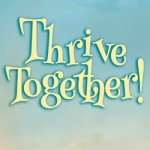One way to understand trauma is it means we got a blow greater than our nervous system can tolerate – then we move into hyperarousal, and then hypoarousal or dissociation. This cycle can continue long after. Here, we're not able to fully process emotional cues, information, our body, and others. It's important we consider re-writing the cultural paradigm of separation so that our trauma doesn't get marginalized.










